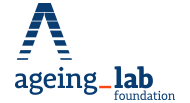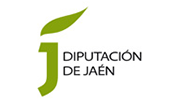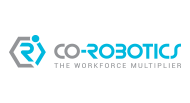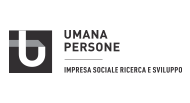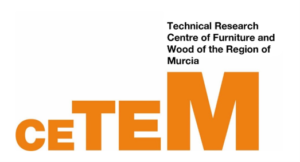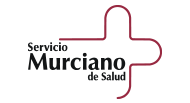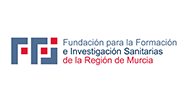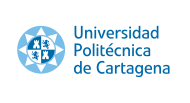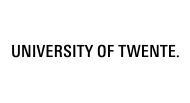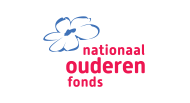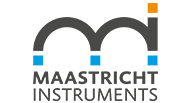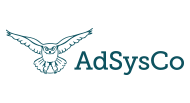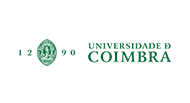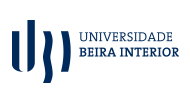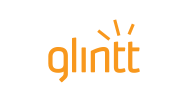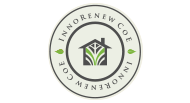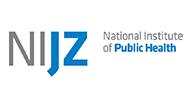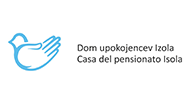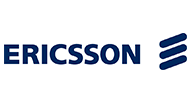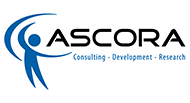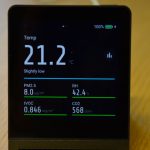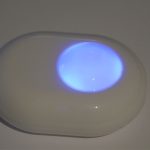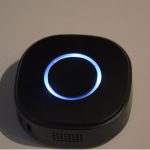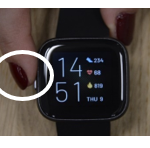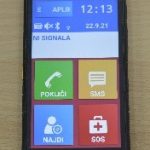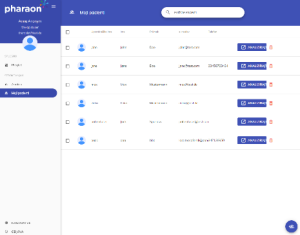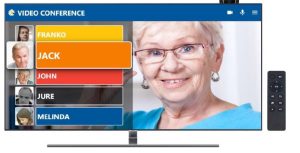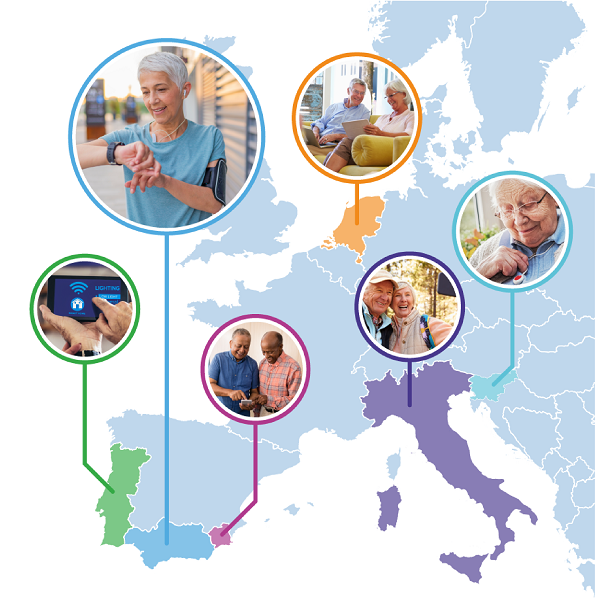
The Pharaon project has generated substantial insights into the effects of digital technologies on older adults and their caregivers across various pilot sites. A summary of key results across pilots can be found under global results:
Click on the the map or choose from the list below to get directly to the specific pilot results of interest:
Italy – click here Andalusia (Spain) – click here
Portugal – click here Murcia (Spain) – click here
Slovenia – click here Netherlands – click here
Pilot Andalusia (Spain)
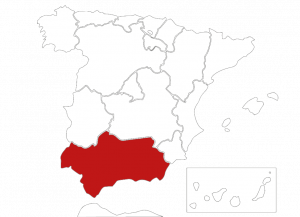
Contact person: Ana Perandrés-Gómez (click here to send her an email)
Location: Andalusia, Spain
Description (click for more details)
The Andalusian pilot project aimed to make technology more accessible and user-friendly for older people, with the goal of preventing unwanted loneliness and promoting active ageing: supporting physical wellbeing, participating in the community and providing cognitive stimulation.
Among the technologies used are SENTAB. a sozialisation technology, Miss Activity, a physical activity monitoring tool (Maastricht Instruments) and NeuronUP (Open Call 1), a cognitive & emotional stimulation platform.
Results
Recruitment of 529 participants: 509 older adults, 20 formal and informal caregivers
- The quality of life improved significantly in the group of people who used the Sentab social network compared to the control group.
- Loneliness improved significantly in the group of people who used the Sentab social network compared to the control group.
- Self- esteem improved significantly in the group of people who used the Sentab social network compared to the control group.
- Technostress is a variable that affects how people interact with technology (usability) and also interacts with other variables of interest. Technostress significantly decreases after several months of using the technology.
- Older adults who have used different technologies such as Miss Activity, Sentab and NeuronUP experience a greater sense of happiness. This suggests that the use of these technological tools has had a positive impact on their emotional well-being, due to interaction, stimulation and carrying out activities.
- Older adults who have used Miss Activity’s activity tracking technology have reported feeling more active and full of energy. The technology has allowed them to monitor their movements, encouraging them to be more aware of their physical activity and to keep moving, which has given them a sense of vitality.
- After participating in the Andalusia pilot, older adults perceived a greater sense of belonging to the group. Many of them commented that they managed to establish long-lasting social relationships, which expanded their social circle. This is important, since loneliness and social isolation are common problems during ageing and this type of interaction can improve their quality of life.
- Thanks to the NeuronUP cognitive stimulation web platform, older adults have improved their visuospatial skills (skills related to the perception of objects and the space around them) by completing activity sheets and games. In addition, they reported a reduction in daily monotony, indicating that cognitive activities offer them mental stimulation that helps them stay engaged and mentally active.
Related scientific articles
- Polo-Rodríguez, A., Dionisio, P., Agnoloni, F., Gómez, A. P., Paggetti, C., González López, L., Lendínez, A. C., Espinilla-Estévez, M., & Medina-Quero, J. (2022). Challenges of ubiquitous and wearable solutions to address active ageing in the Andalusian community. JUCS – Journal of Universal Computer Science, 28(11), 1221-1249. https://doi.org/10.3897/jucs.86891
Pilot Italy
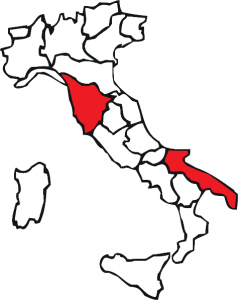 Contact person: Laura Fiorini (click here to send her an email)
Contact person: Laura Fiorini (click here to send her an email)
Location: Tuscany + Apulia, Italy
Description (click for more details)
The Italian pilots aimed at improving the quality of life at home for older people in vulnerable situations or individuals with mild/moderate frailty. In doing so, the pilots emphasized correct health management and monitoring at home.
The Italian pilots tested a multi-platform social network called SENTAB to boost socialization among older adults and caregivers. The Sentab tablet was used in Apulia, and in Tuscany both tablet and Sentab TV were used. A monitoring dashboard “Discovery”, supported caregivers monitoring the health status of selected pilot participants. In Tuscany, the participants were also asked to try the Ohmni telepresence robot.
Results
Recruitment of 753 participants: 298 older adults, 286 informal caregivers, 169 formal caregivers
- Overall the socialization and monitoring scenario expressed high user experience.
- The older adults in the monitoring scenario had an improvement in quality of life compared to participants in the control group.
- Stress towards technology decreased over time, and the effect was stronger in the socialization scenario.
- Apulia pilot site
- Older adults were proud of having raised their level of digital skills thanks to the adoption of the technologies and the training sessions provided by the Pharaon team.
- Participants increased the awareness of their health status and the importance of monitoring their lifestyles. Many declared a change in their habits stimulated by the monitoring devices provided by Pharaon.
- Several participants asked for more cognitive exercises to be performed independently at home to keep their mind active, even after the end of the Pharaon study.
- Tuscany pilot site
- After experimenting with the online cognitive stimulation platform, a user wanted to continue using the proposed activities independently, as she found interest and satisfaction in them.
- The telepresence robot for video communication between an older adult living alone and her family members residing in distant cities. The user’s limited digital skills did not prove to be an obstacle in using the technology, and her family also recognized its value.
- Some older adults have increased awareness of their health status through the use of monitoring devices and have shown a greater interest in physical well-being. They stated that they intend to purchase such devices even after Pharaon.
Related scientific articles
- D’Onofrio G, Fiorini, L.,Toccafondi L, Rovin E, Russo S, Ciccone F, Giuliani F, Sancarlo D, Cavallo F. Pilots for Healthy and Active Ageing (PHArA-ON) Project: Definition of New Technological Solutions for Older People in Italian Pilot Sites Based on Elicited User Needs. Sensors 2022, 22, 163. https://doi.org/10.3390/s22010163
- Lorusso L, Mosmondor M, Grguric A, Toccafondi L, D’Onofrio G, Russo S, Lampe J, Pihl T, Mayer N, Vignani G, Lesterpt I, Vaamonde L, Giuliani F, Bonaccorsi M, La Viola C, Rovini E, Cavallo F, Fiorini L. Design and Evaluation of Personalized Services to Foster Active Aging: The Experience of Technology Pre-Validation in Italian Pilots. Sensors. 2023; 23(2):797. https://doi.org/10.3390/s23020797
- Pani, J., Lorusso, L., Toccafondi, L., D’Onofrio, G., Ciccone, F., Russo, S., Giuliani, F., Sancarlo, D., Calamida, N., Vignani, G., Phil, T., Rovini, E., Cavallo, F., & Fiorini, L. (2024 in press). How time, living conditions and stress related to technology influence user acceptance and usability of a socialization service for older adults and their formal and informal caregivers: a six-month pilot study. JMIR Aging http://dx.doi.org/10.2196/54736
- Fiorini, L., Pani, J., , Rovini, E., Toccafondi, L., Calamida, N., Lorusso, L., Russo, S.,D’Onofrio, G., Iannacone, G., Giuliani, F., Taveter, K., & Cavallo, F. (2024 in press). Promoting Older Adults’ Independent Living with Assistive Technology: Emotional Requirements, Technostress and Formal Caregivers Perspective. In 2024 46th Annual International Conference of the IEEE Engineering in Medicine & Biology Society (EMBC). IEEE
- Fiorini, L., Pani, J., Rovini, E., Toccafondi, L., Calamida, N., Vignani, G., & Cavallo, F. (2023, December). Evaluating Telepresence Robot for Supporting Formal and Informal Caregivers in the Care Support Service: A Six-Month Case Study. In International Conference on Social Robotics (pp. 275-284). Singapore: Springer Nature Singapore. https://doi.org/10.1007/978-981-99-8718-4_24
- Fiorini, L., D’Onofrio, G., Lorusso, L., Russo, S., Ciccone, F., Giuliani, F., … & Cavallo, F. (2023, July). Stay cognitively and socially active with me: a six-month study of a socialization service. In 2023 45th Annual International Conference of the IEEE Engineering in Medicine & Biology Society (EMBC) (pp. 1-4). IEEE. doi: 10.1109/EMBC40787.2023.10340527. PMID: 38082847.
- Rovini, E., Pani, J., Lorusso, L., Russo, S., Toccafondi, L., D’Onofrio, G., … & Fiorini, L. (2023, June). Evaluating Technology-Based Socialization and Monitoring Assistive Services to Enhance Active and Healthy Aging: Lessons from the Pharaon Project. In Italian Forum of Ambient Assisted Living (pp. 186-194). Cham: Springer Nature Switzerland. Link
Pilot Murcia (Spain)
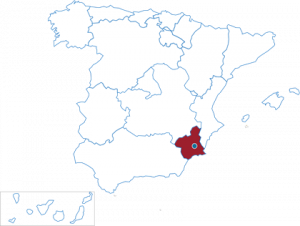 Contact person: Francisco Melero (click here to send him an email)
Contact person: Francisco Melero (click here to send him an email)
Location: Region of Murcia, Spain
Description (click for more details)
The Murcia pilot aimed to establish the basis of a new TeleCare Model for the Public Health Care Service of the region starting with patients with chronic heart failure, improving their health and care services and detecting emergency situations to reduce the dependency of older adults. In Murcia, the main Scenarios to be tested are related to getting involved in the health and care process, improving patient care and detecting emergency situations.
To answer these scenarios, the technologies selected were the uGRID platform (MIWEnergia), a commercial Smartband and an Activity Tracking App developed by UPCT Smartband, Amicare (CETEM), sensors and RB1-Base1 (Robotnik). Moreover, two additional technologies were selected from the Open Call 1 applicants due to their alignment with the Pharaon Challenges that the Murcia pilot addressed: CardioNET (Syndesis Ltd), and Nexus&Arcus (BYTEK Smart Solutions S.L). All of them were integrated in the Onesait Healthcare Data Platform, a telemedicine platform that allows the treatment and follow – up of chronic patients at home. Through its two users’ interfaces: MyHealth app for older adults and informal caregivers, and Homecare, for health providers, the system offers tools for the bidirectional communication among healthcare professionals in the clinical setting and patients at home, so that patients are provided with personalized treatments according to their clinical conditions and progress
Results
Recruitment of 518 participants: 314 older adults, 152 informal caregivers, 44 health and care professionals, 8 service providers
- Improved Quality of Life: Quality of life improved both in the experimental and the control group, though the experimental group showed a greater positive impact.
- User satisfaction: The usability score for older adults was above 80 out of 100 for women and men at the end of the pilot, confirming a high level of satisfaction with the integrated technological solutions.
- Improved self-care: The percentage of individuals with excellent self-care increased significantly from 53.6% to 84.4%, while those with improvable self-care decreased from 42.3% to 14.3%, and those with poor self-care dropped from 4.1% to 1.3%.
- Reduced independence: Total independence decreased from 78.2% to 73.1%, while low dependency increased from 3% to 11%, indicating that some participants now require less assistance than before, but still need support.
- Impact on caregivers’ Quality of Life: The quality of life of male informal caregivers remained high (from 89.04 to 94.82), while female caregivers, although initially improving, showed a slight decrease at the end of the pilot (from 91.31 to 87.67).
- As expected, the Murcian Health Service call service was able to detect multiple health issues related to heart failure thanks to the tested devices i.e. fluid retentions, arrhythmias or hypotension
- In addition, a number of issues were detected, that were not the main aim of our intervention, like the early diagnosis of a colon cancer due to the daily symptoms registries or the intervention of social work services to provide dental care and care services to relatives with special needs.
- Participants and informal caregivers expressed high levels of satisfaction with the Murcia Pilot interventions, highlighting improvements in health habits, emotional well-being, and overall quality of life. Many reported feeling more secure and supported, particularly appreciating the personalized attention and continuous monitoring provided by the program.
- The pilot also positively impacted the management of chronic conditions, with some participants noting significant benefits in their daily activities and self-care practices.
- Caregivers felt more equipped to handle their responsibilities, and many recommended the continuation of the program, emphasizing its beneficial impact on both physical and mental health.
Related scientific articles
- Bueno-Delgado, M.V. Melero-Muñoz, F.J., Beteta-Medina, M.A., Maestre-Ferriz, R., Sánchez-Nanclares, G. (2024). Health Empowerment for Older Adults through IoT: A case study of telecare for Chronic Heart Failure patients. In 13° Forum Italiano Ambient Assisted Living ForItAAL 2024, July 2024. To be published in ForItAAL Book on the Lecture Note in Bioengineering (LNBE)
- Gambo I,et al. (2023) Technology adoption review for ageing well: analysis of technical solutions.Front. Public Health 11:1169192. doi: 10.3389/fpubh.2023.1169192
- Melero-Muñoz, F. J. et al. (2022). Design and development of a heterogeneous active assisted living solution for monitoring and following up with chronic heart failure patients in Spain. Sensors,22(22), 8961. https://doi.org/10.3390/s22228961
- Mooses, K., et al. (2022). Involving older adults during COVID-19 restrictions in developing an ecosystem supporting active aging: overview of alternative elicitation methods and common requirements from five European countries. Frontiers in psychology, 13, 818706. https://doi.org/10.3389/fpsyg.2022.818706
- Martínez-Carreras, R., et al. (2021). Co-design and engineering of user requirements for a novel ICT healthcare solution in Murcia, Spain. In Smart Objects and Technologies for Social Good: 7th EAI International Conference, GOODTECHS 2021, Virtual Event, September 15–17, 2021, Proceedings 7 (pp. 279-292). Springer International Publishing. https://doi.org/10.1007/978-3-030-91421-9_21
- Martínez Lax, A., et. al (2023). Predictores de adherencia a una app de salud en el proyecto europeo Pharaon. En: XLI Congreso Anual de la Sociedad Española de Ingeniería Biomédica. Cartagena: Universidad Politécnica de Cartagena, 2023. Pp. 314-317. ISBN: 978-84-17853-76-1 http://hdl.handle.net/10317/13625
- Melero-Muñoz FJ (2023). Soluciones TIC para envejecimiento activo y saludable en el hogar, en el puesto de trabajo y en la sociedad (ICT solutions for active and healthy aging at home, in the workplace, and in society). https://repositorio.upct.es/handle/10317/12379
- Pérez Martos S (2023) Contribución al despliegue de solución IoT para el cuidado proactivo de personas con dolencia cardiaca crónica (Contribution to the deployment of an IoT solution for proactive care of individuals with chronic heart disease) https://repositorio.upct.es/handle/10317/12615
Videos below deptic the impact of Pharaon on Murcian pilot participants subtitled in English. More videos on experiences of participants in Spanish can be found on the Pharaon Murcia Pilot Youtube Channel (click here)
Pilot Netherlands
Contact person: Dr. Femke Nijboer (click here to send her an email)
Location: Amersfoort, Utrecht, Bloemendaal, Lelystad, IJsselstein, Driebergen, Ommen
Description (click for more details)
The Dutch pilot focused on the PlusBus of the National Foundation for the Elderly. The Dutch pilots extended the service of the PlusBus to support users to connect to each other and to stay fit. We used a set of integrated technologies. These technologies were: Regicare message pages for activities of the PlusBus (AdSysCo); PACO an virtual eating and cooking coach (RRD); MISS Activity, a monitoring tool for physical activity (Maastricht Instruments).
Results
Recruitment of 119 older adults at 8 locations in the Netherlands
- Health, quality of life, and social cohesion were good in both groups from the start.
- People in the experimental group self-reported being more physically active from the start in comparison to the control group.
- When given the chance (experimental group) 18% of the participants chose to try out the monitoring tool for physical activity (MISS Activity; Maastricht Instruments).
- The technologies do not seem to have affected health, quality of life or social cohesion.
- Participants were happy to contribute to science and to be involved in all phases of the study, including the design of the solutions,
- Many older adults in the pilot already used technologies to monitor their health.
- They find the topic of prevention of disease or loneliness important and think more effort should be made in involving the right target group.
Related scientific articles
- Tunc, Sefora, Femke Nijboer, Geke DS Ludden, Lex S. van Velsen, en Monique Tabak. ‘Scenario-based co-design with older adults: A design case on decreasing loneliness’. International journal of design 17, nr. 2 (2022): 99-113. DOI:10.57698/v17i2.06
- Tunc, Sefora, Femke Nijboer, Angelique Tinga, en Monique Tabak. ‘“Hi, My Name is Robin” – Remotely Co-designing an Embodied Conversational Agent for Empathy with Older Adults’, 376-91, 2023. https://doi.org/10.1007/978-3-031-34866-2_27.
- Oberschmidt, Kira, Christiane Grünloh, Femke Nijboer, en Lex van Velsen. Action Research in eHealth design and implementation: A literature review of best practices and lessons learned (Preprint), 2021. https://doi.org/10.2196/preprints.31795.
- Oberschmidt, Kira, Christiane Grünloh, Sefora Tunç, Lex van Velsen, en Femke Nijboer. ‘You can’t always get what you want: streamlining stakeholder interests when designing technology-supported services for Active and Assisted Living’, 649-60, 2020. DOI:10.1145/3441000.3441040
- Oberschmidt, Kira, Christiane Grünloh, en Monique Tabak. ‘A Framework for Stakeholder Involvement in eHealth Action Research’. Systemic Practice and Action Research, 2024. https://doi.org/10.1007/s11213-024-09675-1.
Pilot Portugal
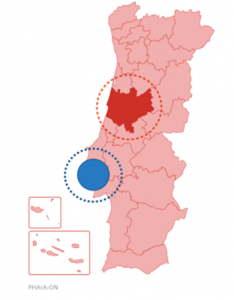
Contact person: Elisabete Pitarma in Coimbra (click here to send her an email) + Adriano Fernandes in Amadora (click here to send him an email)
Location: Coimbra + Amadora, Portugal
Description (click for more details)
The Portuguese pilot aimed to develop and implement citizen-focused solutions and design an integrated care system (planning, integrated infrastructures and processes, knowledge sharing).
In terms of technologies, the Portuguese pilot used the SENTAB app to address social cohesion, reduce isolation, and provide services for older adults. The app supported the creation of Services on Demand, Proximity Volunteering, and Carer Campus within infrastructures such as day care centres. The Citizen App aimed to enhance urban life by promoting a healthy relationship between human health and the environment. It facilitated knowledge-sharing among citizens, caregivers, and the scientific community to improve environmental awareness and social participation. The Integrated Care service used a digital solution, Globalcare, to support formal carers in managing care tasks and tracking the progress of older adults. Additionally, the Ambient Assisted Living service provided technology, like the Zensi system, to support older adults in their daily lives by monitoring sleep patterns and detecting potential health risks.
Results
Recruitment of participants 945: 586 older adults, 153 formal caregivers, 139 informal caregivers, 52 volunteers, 15 service providers
- Throughout the Portuguese pilot, quality of life increased for formal caregivers.
- The quality of life of older adults increased, a pattern mainly determined by those who were living in residential care homes where quality of life was initially very low. Furthermore, loneliness declined, again more noticeably for those living in residential care homes.
- Older adults found the technology easier to use over time, particularly those who previously claimed to have less proficiency with technology.
- The overall dropout rate was around 10,1%. Therefore, we can consider that the interventions were very successful.
- “António” joined a day centre two years ago. After his wife moved to a nursing home, he stayed for the activities and company. While testing SENTAB, he began sharing photos of his gardening passion and events. This boosted his pride and connected him more with others.
- “Sofia” and “Manuel” learned about the Citizeen app through another organisation. During a citizen science session with high school students, Sofia, a lifelong Coimbra resident passionate about nature, shared local stories and plant knowledge. She felt valued and enjoyed connecting with the students and others.
- “Emily”, a caregiver, was concerned about her mother’s sleep quality. She shared this concern with the Daycare Center’s team, who suggested testing Zensi. The solution’s final report confirmed lack of sleep and restlessness, and “Emily” finally had evidence to show to her mother’s neurologist that there was a reason to consider sleep medication.
Related scientific articles:
- Under publication
Pilot Slovenia
Contact person: Andreja Kutnar (click here to send her an email)
Location: Izola, Ljubljana, Domžale, Lucija, Koper, Žalec
Description (click for more details)
The Slovenian part of the project aimed to provide appropriate technological solutions to support independent living, increase social inclusion and improve the well-being of older people, especially at retirement homes.
Pharaon partners developed, designed and integrated technological devices to improve quality of life with:
- Smart bracelets ensured the safety of older adults in retirement homes with measuring heart rate, steps taken, type of activity and calories burned to inform caregivers about the well-being and inconveniences of older adults.
- The Daisy video-conferencing system allowed communication with relatives and friends, and was used by older adults via television. Their caregivers were able to connect to the system via the IoChat platform, which, in addition to video-conferencing calls, also allowed them to send messages and files.
- SeniorsPhone is an app for smartphones that made it easier for older adults to call and text, sending their location or SOS to caregivers.
- Air quality sensors detected changes in a room to ensure older adults’ safety by measuring room temperature, humidity, hazardous particles, carbon dioxide and volatile organic compounds.
- The IoTool platform collected data sent by the sensors and smart bracelets, encrypted, stored, and processed it before being sent to the SmartHabits platform, which analysed the data and detected anomalies.
- The Discovery platform extracted the data from the SmartHabits platform to display it in a meaningful way in the form of graphs, which caregivers were able to use to optimize the older adults’ environment and provide necessary assistance.
- air quality sensor
- motion sensor
- call button
- smart bracelet
- SeniorsPhone app
- Discovery platform
- Daisy video-conferencing system
- IoChat platform
Results
Recruitment of 288 participants: 196 older adults, 34 formal caregivers, 58 informal caregivers
- Health Perception: Participants using wearables saw an improvement in perceived health over time compared to the control group.
- Loneliness Reduction: The use of socialization technologies like Daisy and SeniorsPhone reduced loneliness by 17% in the intervention group.
- Quality of Life: Quality of life among participants increased by almost 10% with using Pharaon technologies in the intervention group.
- Trust in Technology: Trust in technology among participants increased by almost 30%, reflecting growing confidence in using the devices over time.
- Psychological needs: Relatedness increased by 7.3% over time in the intervention group.
- Loneliness Decreased: A resident using SeniorsPhone experienced a significant reduction in loneliness, leading to more social engagement and overall happiness, which they spread around the retirement home.
- Improved Wellbeing: Despite initial scepticism, an older adult reported feeling more independent and secure after using the Pharaon technologies, contributing to an improved sense of wellbeing
- Due to the Pharaon fieldwork, a white paper on retirement homes was submitted to the government, along with recommendations for designers and architects to enhance future retirement homes, ensuring better opportunities and improved living conditions for older adults.
Related scientific articles
- Lipovac D and Erce M. Wellbeing, loneliness, health-related quality of life and perception of technology of older adults in Slovenian senior homes: a cross-sectional study [version 1; peer review: 1 approved, 1 approved with reservations]. Open Res Europe 2023, 3:195 (https://doi.org/10.12688/openreseurope.16205.1)


